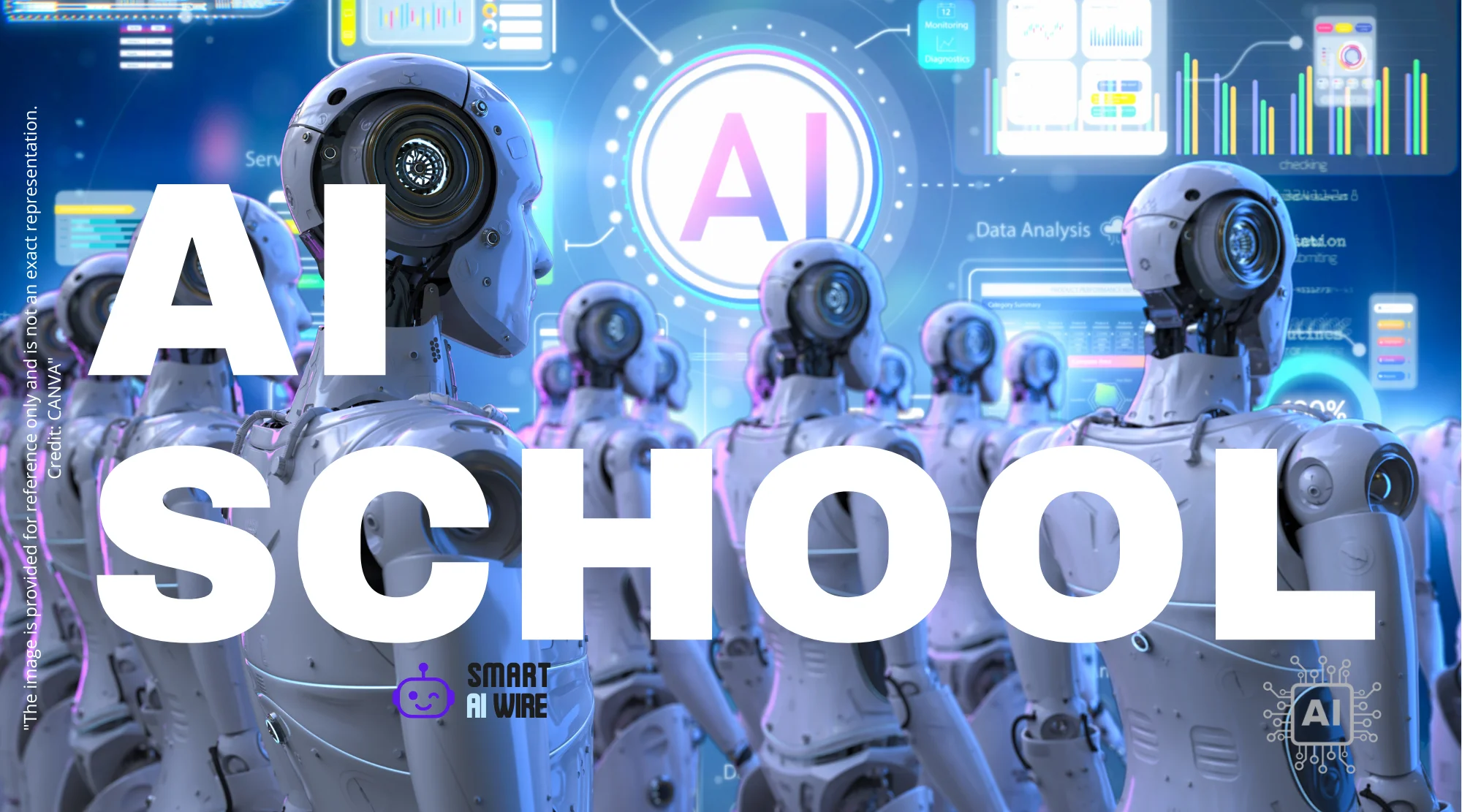The AI Salary Surge: Unlocking Higher Earning Potential in the Digital Age
The landscape of employment is undergoing a seismic shift, driven by the relentless advance of artificial intelligence. For professionals seeking to boost their earning potential, acquiring AI-related skills is no longer a niche pursuit but a strategic imperative. Recent data reveals a significant salary premium for roles requiring artificial intelligence expertise, indicating a clear demand from employers willing to invest in this transformative technology. This burgeoning trend suggests that embracing AI proficiency is key to navigating and thriving in the evolving economy of the 21st century.
The findings underscore a compelling reality: jobs demanding AI acumen command a substantial salary increase, averaging 28% higher than their non-AI counterparts. This translates to an impressive additional income of nearly $18,000 annually, according to an analysis by employment data firm Lightcast, as reported by CNBC. This economic incentive highlights the immediate value employers place on individuals capable of leveraging AI tools and understanding AI principles.

AI Skills: A Growing Demand Across Industries
Contrary to a common misconception that AI talent is confined to the tech sector, the Lightcast report reveals a more expansive picture. Over half of job openings requiring AI proficiency are found outside traditional technology firms. This diffusion of AI adoption across various fields signifies that its impact is far-reaching, permeating numerous sectors and redefining job requirements for a broad range of professionals.
The integration of artificial intelligence has accelerated at an unprecedented pace across diverse functions such as marketing, human resources, sales, and customer support, as well as manufacturing. Since 2022, there has been an astonishing 800% surge in mentions of generative AI capabilities within non-tech roles, according to the CNBC report. This dramatic increase points to a rapid evolution in how businesses are seeking to harness AI’s potential to enhance efficiency and innovation.
Even industries traditionally considered less technologically oriented are witnessing a significant uptake of AI skills. Marketing and public relations, for example, now see AI proficiency requested in 8% of job openings, with year-over-year growth exceeding 50% in this segment. Human resources is also experiencing a pronounced need for AI competencies, with a 66% rise in demand, particularly for talent acquisition roles. The finance sector has seen a 40% increase in such requirements, with quantitative analyst positions being a prominent area of growth. This widespread adoption signals a fundamental reshaping of skill sets across the professional spectrum.
The Rise of Prompt Engineering and Specialized AI Roles
Among the most sought-after AI-related skills is prompt engineering. This specialized discipline involves crafting precise and effective instructions for generative AI systems to achieve desired outputs. The market has responded enthusiastically to this skill, with prompt engineering roles offering annual salaries exceeding $100,000. An IBM executive, cited by CNBC, confirmed that prompt design has become crucial for organizations integrating AI tools into their products and workflows, underscoring its strategic importance.
This demand for specialized AI roles extends beyond prompt engineering. As AI technologies mature, new functions and areas of expertise are emerging, creating further opportunities for professionals to differentiate themselves. Understanding how to effectively communicate with and guide AI models is becoming a critical component of many job descriptions, reflecting the evolving nature of human-machine collaboration.
Furthermore, the ability to combine AI knowledge with existing domain expertise is proving particularly lucrative. For instance, an AI-savvy marketer can leverage generative AI to create more effective campaigns, while an AI-literate financial analyst can employ AI for more sophisticated data analysis. This synergy of skills amplifies an individual’s value proposition in the job market.
Beyond the Tech Sector: AI’s Broadening Influence
The Lightcast analysis highlights a critical insight: adding a second AI competency to one’s skill set can increase the offered salary premium to as much as 43%. This suggests that a foundational understanding of AI, coupled with more specialized knowledge, creates a compounding effect on earning potential. The fields that exhibit the most significant remuneration differences include customer service, sales, and manufacturing—sectors that, until the recent AI expansion, were historically less directly associated with technological disruption.
This broad impact across industries demonstrates that AI is not merely a tool for software engineers but a transformative force impacting nearly every facet of business operations. Companies are actively seeking individuals who can bridge the gap between AI capabilities and practical business applications, regardless of their primary industry. This democratization of AI skills means that professionals from diverse backgrounds can capitalize on this trend.
The implications for career development are substantial. Individuals in customer-facing roles might use AI to personalize customer interactions, while those in manufacturing could employ AI for predictive maintenance and quality control. Sales professionals can leverage AI for lead generation and customer segmentation, and those in HR can use AI to streamline recruitment processes. The opportunities are as varied as the industries themselves.
Embracing AI: A Necessity for Future Career Growth
The report’s findings reinforce a clear message: employers are prepared to offer significantly higher salaries for individuals possessing AI skills. This reflects the growing recognition of AI’s capacity to drive efficiency, foster innovation, and create competitive advantages. For workers aiming to adapt and thrive in the digital economy, acquiring and honing AI-related competencies is no longer optional but essential.
The accelerated integration of AI across businesses of all sizes is fundamentally reshaping recruitment priorities and career opportunities for the foreseeable future. As AI continues to evolve, so too will the demand for specific skills and expertise. Staying abreast of these developments and proactively acquiring relevant knowledge will be key to maintaining career relevance and maximizing earning potential.
Consider the rapid advancements in areas like AI Revolution: Decoding the Future of Intelligence and Innovation. This ongoing evolution means that the skills in demand today might be augmented or even superseded by new AI capabilities tomorrow. Therefore, a commitment to lifelong learning and continuous upskilling in AI is paramount.
Strategic Skill Development for the AI Era
For individuals looking to capitalize on the AI salary surge, a strategic approach to skill development is crucial. This could involve formal education, online courses, bootcamps, or self-directed learning through resources like Gemini AI Prompts: Unlock Its Full Potential Now!. Understanding the fundamentals of AI, machine learning, and data science can provide a strong foundation.
Beyond technical skills, developing an understanding of how to apply AI in specific business contexts is vital. This might include learning how to use AI tools for content creation, as explored in articles such as Smart ChatGPT Prompts: 15 Ways to Simplify Kids’ Homework or Master Academic Writing: Proven ChatGPT Prompts for Top Grades, or how AI is revolutionizing creative asset generation, as seen with Google AI Asset Studio: Revolutionizing Creative Asset Generation.
The ability to identify problems that AI can solve and then implement effective AI-driven solutions is a highly valued skill. This requires not only technical know-how but also critical thinking and a good understanding of business objectives. As AI continues to permeate industries, the demand for professionals who can bridge the gap between technology and practical application will only grow.
For instance, understanding concepts like Tokens and Embeddings Explained: The Core of AI Language Understanding can provide deeper insights into how AI processes information, leading to more effective use of AI tools. Similarly, exploring how AI is applied in specialized fields like AI in Healthcare Supply Chains: Predictive Tools for Unprecedented Resilience can open up unique career paths.
The Future is AI-Augmented
The economic advantages of AI proficiency are undeniable. The 28% salary premium and the potential for an additional $18,000 annually represent a significant financial incentive for individuals to invest in developing AI skills. This trend is not a fleeting fad but a fundamental restructuring of the labor market. As AI technologies become more sophisticated and integrated into everyday business practices, the demand for AI-skilled professionals will continue to escalate.
Organizations are actively seeking to enhance their operations, improve decision-making, and create new value propositions through AI. This necessitates a workforce capable of harnessing these powerful tools. For professionals, embracing AI is not just about staying competitive; it’s about unlocking new opportunities for growth, innovation, and financial reward. The future of work is undeniably AI-augmented, and those who adapt will be best positioned to succeed.
As AI continues its rapid evolution, staying informed about emerging trends and best practices is crucial. Resources like Google AI Studio: 2D Photos to Stunning 3D Models w/ Prompts and Google’s Gemini AI Image Editor Transforms Photos into 3D Models showcase the cutting edge of AI application in creative fields, illustrating the diverse and exciting possibilities. The continuous development of AI tools and platforms, such as Google AI Plus: Affordable Access to Advanced Gemini Features, further democratizes access to these powerful technologies, encouraging broader adoption and skill development.
In conclusion, the data clearly indicates that AI proficiency is a significant driver of higher salaries. This trend is not limited to the tech industry but is spreading across all sectors, creating new and exciting career opportunities. By proactively acquiring and developing AI skills, professionals can position themselves for greater financial success and play a pivotal role in shaping the future of their industries.




3 thoughts on “AI Jobs Pay 28% More: Unlock Higher Salaries with These In-Demand Skills”